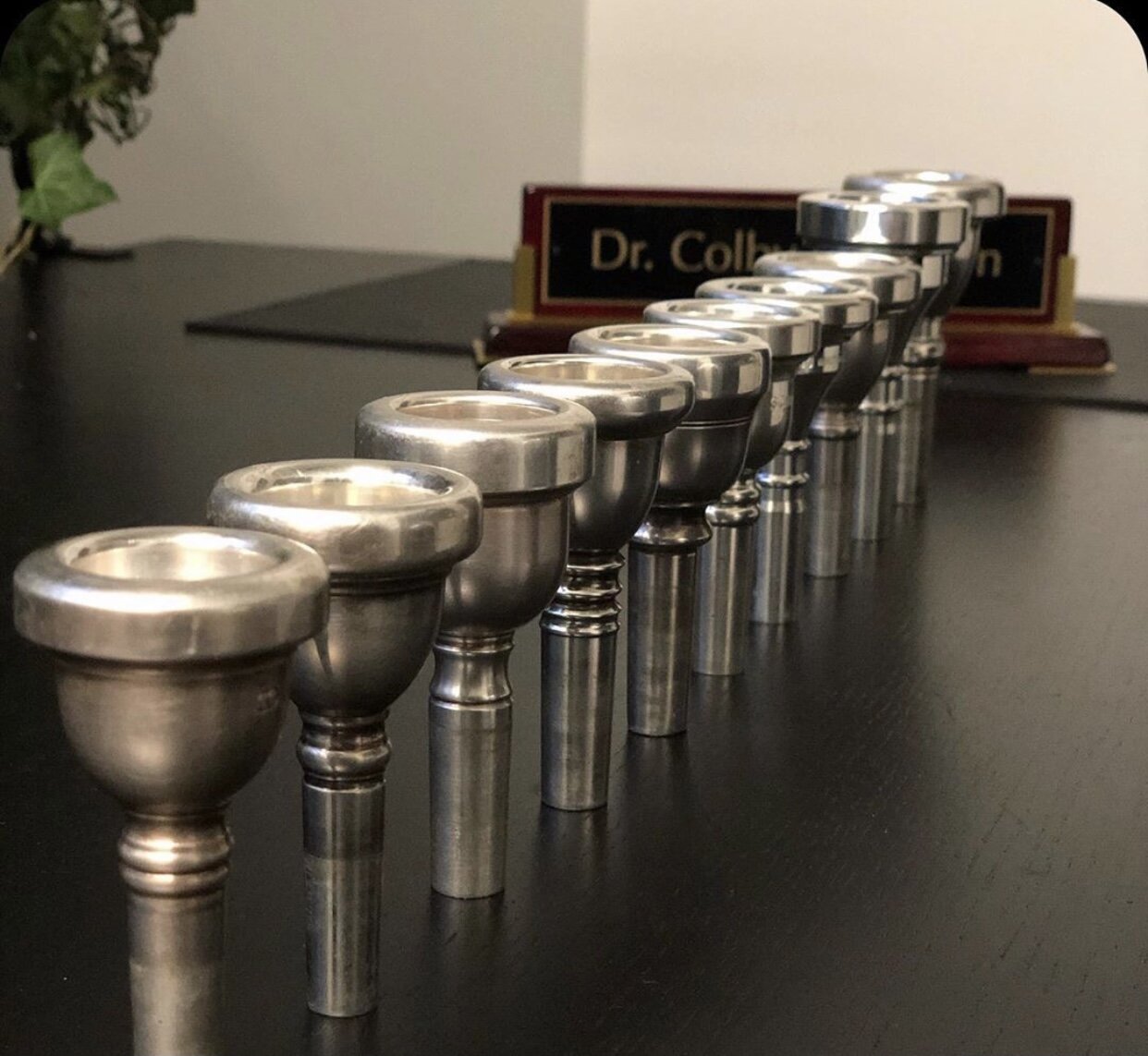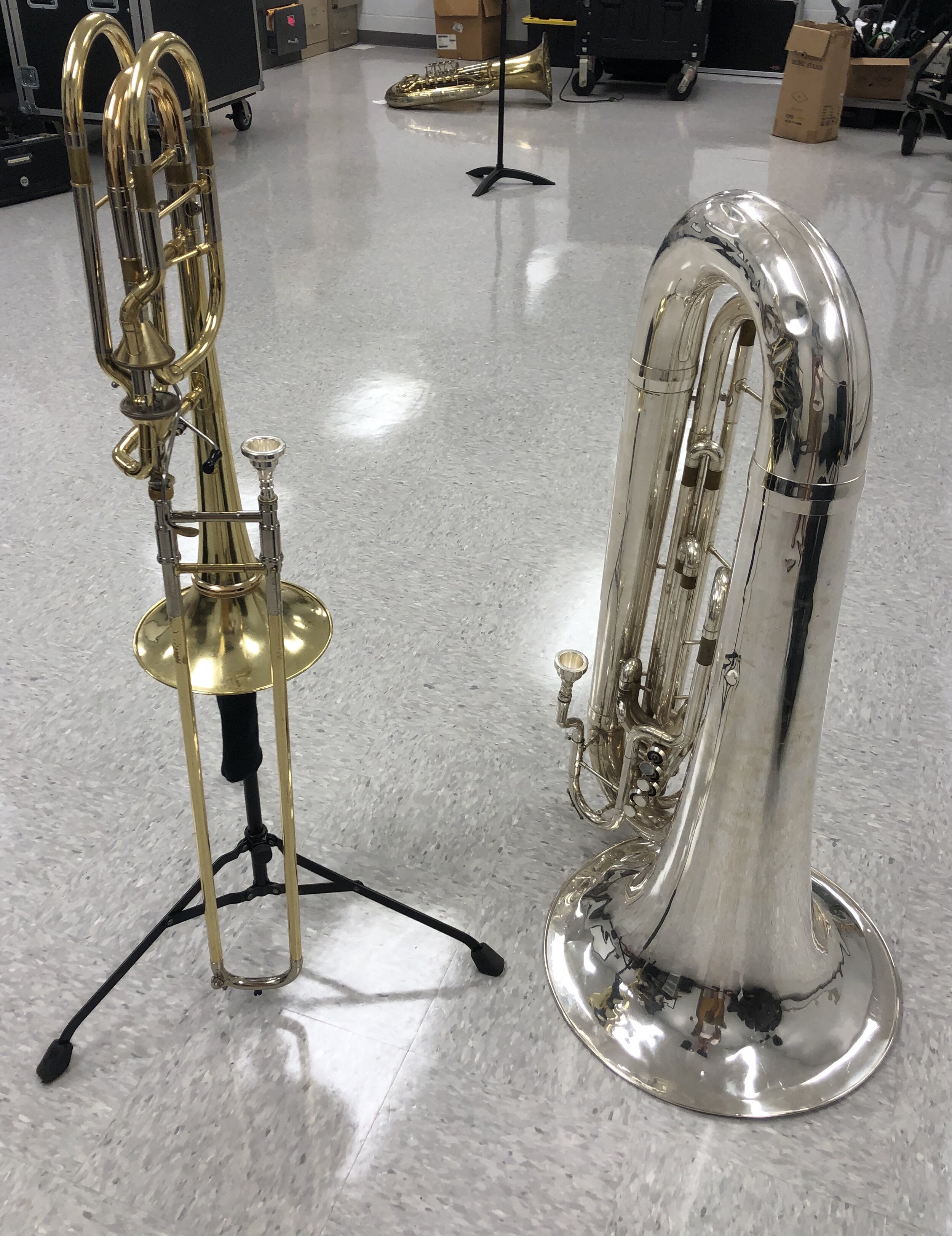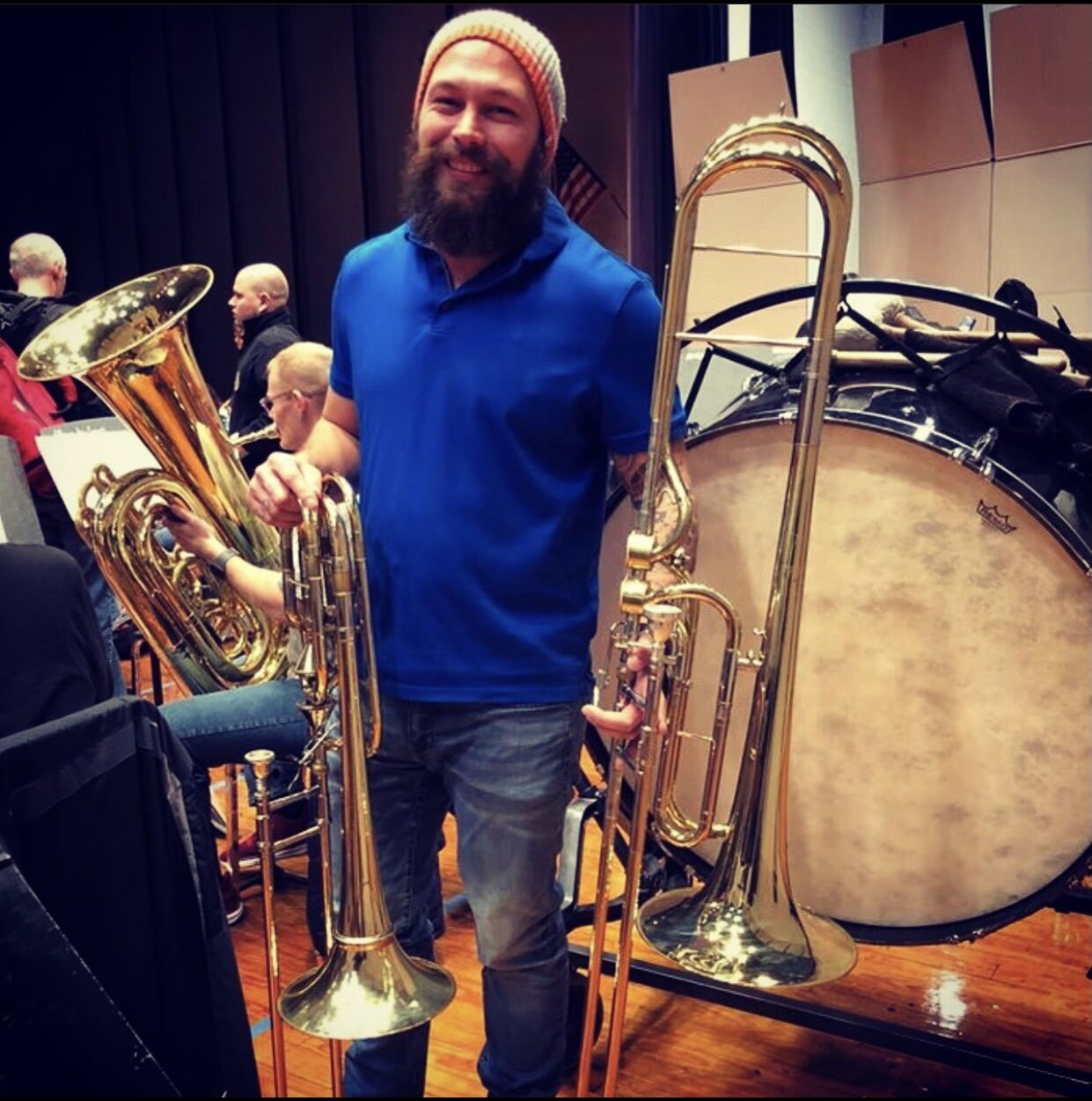On Doubling… the art of balance
First let's talk about what to play before we talk about what instrument to play
You need to have a daily routine that no matter what happens in a day, you've at least done that. You can find some of my favorite routines for free below
Dr. Chris Van Hoff (will ask you to download, sorry.)
Dr. Denson Paul Pollard (some extra material required, excerpts, Charlie Vernon book, Marstellar)
Ben van Dijk (for purchase)
Buddy Baker (for purchase)
Charlie Vernon (for purchase)
Phil Teele (for purchase)
Several of these routines use the same structure of long tones, lip flexibilities, tonguing exercises etc. The differences mostly lie in what order, tempo, rhythm and register. Furthermore most of these take less than a half hour to do which is great because you have other things you need to practice. The daily routine is a maintenance routine just making sure your fundamentals are in check.
For my purposes as we begin a new school year, I’m taking advantage of Dr. Micah Everett’s “Targeted Fundamementals” routines. They are short and contain your basic routine essentials. The plus side to them for me is they are basically the same exercises from alto trombone all the way down to tuba! They always start with long tones, then legato tonguing, lip flexibilities, some slide/valve work, scales, note connection and articulations.
How do I structure these daily routines between slide instruments and valved instruments? I’ve experimented with a few ways. Always starting on a larger instrument and playing a smaller instrument later. Switching the order and starting on a small instrument and moving to a larger one. I’ve tried playing a single routine but each exercise is on a different instrument. I’ve tried to do one instrument a day. All of these options were ok, but I didn’t see progress until I started practicing what my workload demanded, which was inconsistency.
So, how do you make an inconsistent workload, consistent? You can’t, but you can prepare for the unexpected, by making a plan and sticking to it for more than just a week, or even a month.
Teaching days on multiple instruments
I'll look at the day figure out which instrument I have to teach first. That’s the instrument that I will do my warm-up on. If I have to switch instruments for the next lesson, I'll just play a couple of scales or simple melodies (Ode to Joy, My Country Tis of Thee, etc.) or lip flexibilities (half note downward slurs, thanks Buddy Baker!).
Normal practice days without having to teach doubling instruments
On these days I will pick two instruments my main instrument (bass trombone) will always be first and then one other instrument that might be a tenor trombone,alto trombone, contrabass trombone, euphonium, or tuba. I alternate day to day depending on whatever I'm really in the mood to play later that day. This kind of practice day I typically spend a lot of time in method books or solos on each of the instruments. This keeps me thinking musically and less “checklist practicing”.
Doubling on a performance week
On weeks that I have gigs I will look to see what the primary instrument I'm playing. Yes there's a possibility I'm playing two instruments on a gig, but that's the whole point of doubling. Of course I will try to see if I can perform the whole gig on one instrument because lugging around a bunch of equipment is never fun. (But it pays!!).I will put 80% of my practice time towards the main instrument and 20% on the doubling instrument. I will also try to gauge how much time I'll have between playing the two instruments like maybe an intermission or a piece I don’t play on and I will try to use that amount of time to get adequately warmed up. This is where having a daily routine is crucial. It shouldn’t take too much to get warmed up if you are consistently doubling.
The fun part about all of this is that they will overlap. I will have have teaching days that I teach multiple instruments and then later that night perform maybe on two different instruments that I hadn’t played yet. By having a consistent plan that doesn't deviate helps you be a consistent player, no matter the circumstance.
Fun tip: for you bass trombone/tuba doublers only, I’ve had very good success with Reggie Chapman’s new mouthpiece line. Get them both! They are great pieces!






